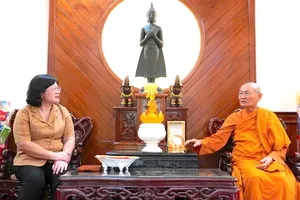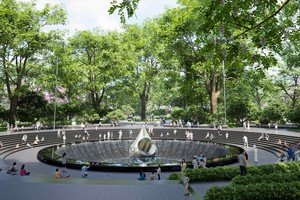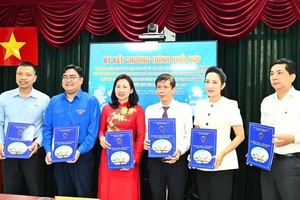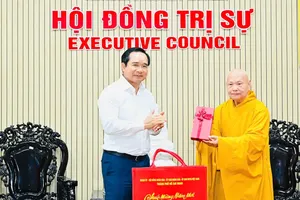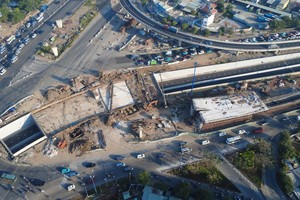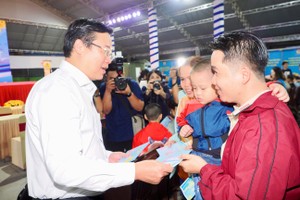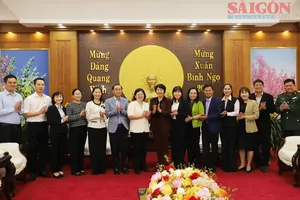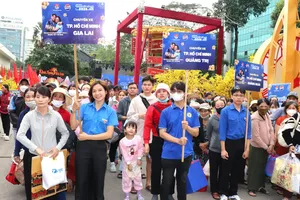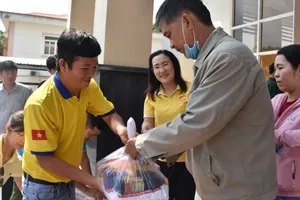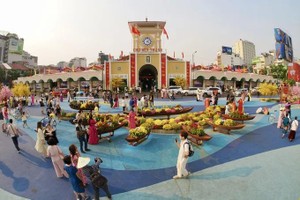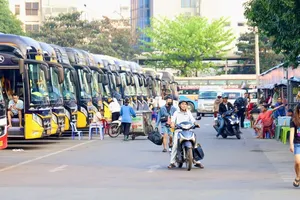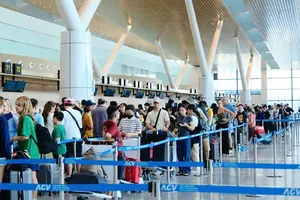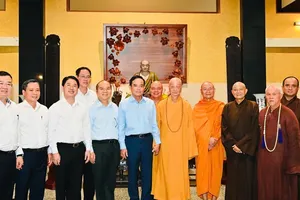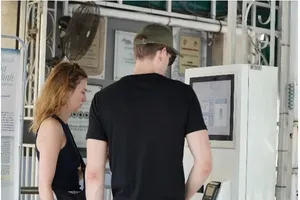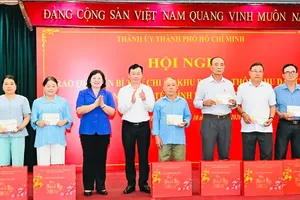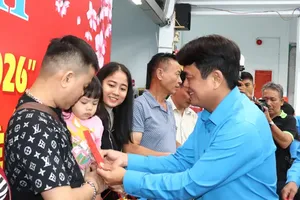In this morning’s working session chaired by Prime Minister Pham Minh Chinh, the Government's permanent members and the Standing Board of the Ho Chi Minh City Party Committee discussed how to remove difficulties for the facilitation of the city's socio-economic development.
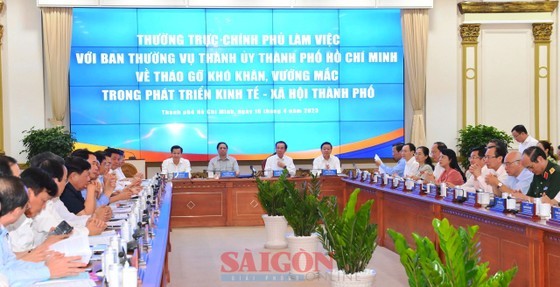 |
| At today's meeting (Photo: SGGP) |
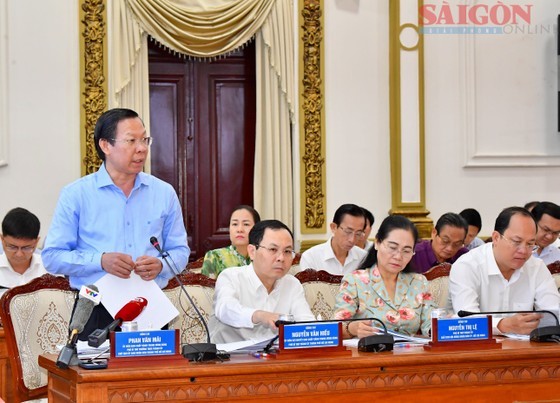 |
Chairman of Ho Chi Minh City People's Committee Phan Van Mai speaks at the meeting (Photo: SGGP) |
Speaking at the meeting, Prime Minister Pham Minh Chinh emphasized that Ho Chi Minh City plays a crucial role in driving national economic development. Over the past time, the Prime Minister and deputy prime ministers have regularly had working meetings with the southern last city to promptly remove difficulties and obstacles, promoting HCMC's development.
According to the PM, today’s working session re-evaluated the socio-economic situation of Ho Chi Minh City in the first quarter of 2023, and at the same time found solutions and specific tasks close to the city’s situation.
Prime Minister Chinh said he understood what difficulties Ho Chi Minh City has been facing including many factors affecting the socio-economic development of the country in general and Ho Chi Minh City in particular. He said though the Covid-19 pandemic was repelled, its consequences were not easily solved in a short time. In addition, the situation in the world and in the region, especially in inflation-fighting countries, has also affected the domestic economy.
In addition, problems in the country’s internal economy also have begun to rear their ugly head in addition to increasingly fierce strategic competition among major countries, causing input material prices, especially gasoline, to affect production inputs.
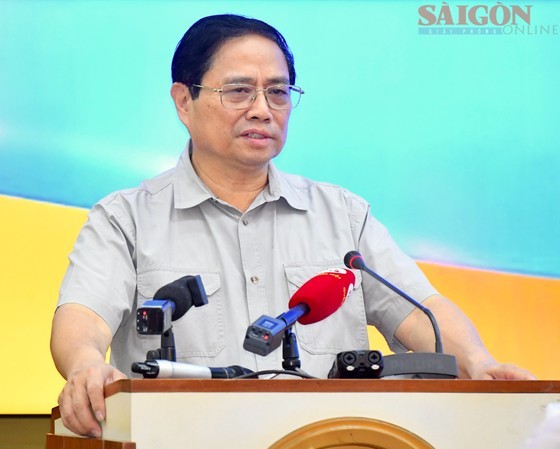 |
Prime Minister Pham Minh Chinh at today's meeting (Photo: SGGP) |
Analyzing the above impact factors, the Prime Minister asked to carefully analyze objective and subjective factors to have suitable solutions in this time.
According to the Prime Minister, since the beginning of the year, there have been many resolutions, decrees and circulars issued to remove obstacles for the economy. However, the Prime Minister questioned how effective these policies have been implemented in Ho Chi Minh City, including healthcare-related mechanisms. Along with that, he wondered whether Ho Chi Minh City has well coordinated the Government, ministries and central agencies to make policies effective in reality.
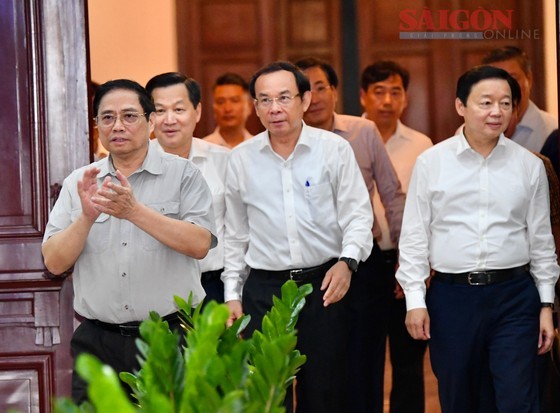 |
Prime Minister Pham Minh Chinh, Ho Chi Minh City Party Secretary Nguyen Van Nen and Deputy Prime Minister Tran Hong Ha at the meeting (Photo: SGGP) |
According to the report of the municipal People's Committee, several changes and positive results were seen in the first quarter of 2023, promoting a number of industries and fields to continue to grow. Amongst these, 5 out of 9 key service industries had a good growth rate. State budget revenue reached 26.6 percent of the yearly estimate. The number of employed workers and the number of new jobs increased slightly over the same period last year. The tourism industry continues to maintain development and achieve high growth rates in both revenue and the number of visitors.
Nevertheless, there are still some shortcomings and limitations such as the city's very low economic growth rate; difficulties in the financial market and real estate market; increased bad debts of banks and bond maturity.
Additionally, enterprises continue to cut laborers and face more difficulties in orders and capital sources while consumer purchasing power is tending to decrease. Out of 9 key service industries, four have seen negative growth and the registered capital of newly established enterprises decreased. Moreover, there is an increase in the number of enterprises suspending operations over the same period last year.
The disbursement of public investment capital is low at approximately 4 percent; progress and content of solving difficulties and problems of the business community by departments and agencies have not met the requirements.
At the meeting, Chairman of Ho Chi Minh City People's Committee Phan Van Mai proposed to the Prime Minister to consider establishing a government working group that will help city leaders to study economic restructuring, identify motivations and breakthrough mechanisms for Ho Chi Minh City to develop according to the Politburo’s Resolution 24 and Resolution 31.
According to the Chairman of the People's Committee of Ho Chi Minh City, this is a long-term and very important job for the southern metropolis’s development in the future.
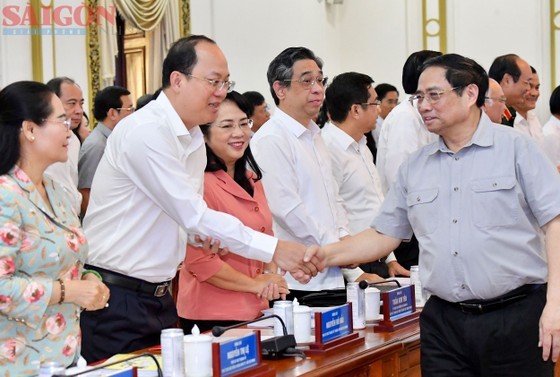 |
PM Chinh shakes hands with HCMC leaders at the meeting (Photo: SGGP) |
Chairman Mai also proposed to the Prime Minister to allow Ho Chi Minh City to pilot the issuance of electronic work permits for foreign workers in line with the policy of digital transformation. At the same time, he mentioned a specific mechanism to implement rooftop solar power projects and decisions for specific prices of public irrigation products and services.
In addition, Ho Chi Minh City proposed to consider amending and supplementing documents such as Decree 152 regulating foreign workers working in Vietnam, recruiting and managing Vietnamese workers to work for foreign organizations in Vietnam; amending the Law on Vocational Education 2014; the Prime Minister’s Decision 46 on the policy of supporting training for primary level and the Resolution on electricity price adjustment for tourist accommodation establishments.
Regarding the arrangement of state-owned enterprises, the city chairman proposed that the Prime Minister should soon approve the plan to arrange state-owned enterprises under the People's Committee from 2021 to 2025.
At the same time, Chairman Mai asked for the policy to help HCMC to coordinate with ministries and central agencies to rearrange housing facilities in Ho Chi Minh City.
Last but not least, the city leader also proposed the Government and the Prime Minister pay attention to the land use plan of equitized state-own enterprises to change land use purposes. In addition, he petitioned for a working group to remove obstacles in the real estate market.
Mr. Mai also supposed the government should have a direction for the early implementation of key regional and inter-regional transport projects including the Ho Chi Minh City - Moc Bai Expressway project, the investment project of the Ho Chi Minh City - Trung Luong expressway, the investment project to expand the Ho Chi Minh City - Long Thanh - Dau Giay expressway, Ring Road 3 and 4, Ho Chi Minh City - Thu Dau 1 - Chon Thanh Expressway and railway projects such as the Ho Chi Minh City - Can Tho railway project, Thu Thiem - Long Thanh light rail project, Thu Thiem railway station, Binh Trieu railway station, urban railway projects with special attention to the allocation of investment capital for equipment of three hospitals in the gateway to Ho Chi Minh City.
Regarding the Ring Road 4 project, the Chairman of the People's Committee suggested that the Prime Minister should assign the localities where the projects go through to actively prepare for the project. The Ministry of Transport needs to monitor to make sure that the Ring 4 project is invested synchronously.

